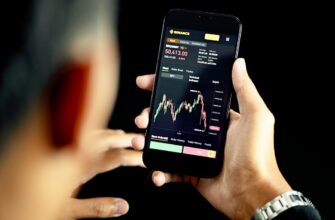With Egypt’s growing interest in cryptocurrency and Bitcoin’s potential as a digital asset, many Egyptians are exploring how to enter the crypto market. Despite the Central Bank of Egypt’s warnings about cryptocurrency risks, individuals can legally buy and hold Bitcoin through international platforms. This step-by-step guide covers everything from regulations to secure transactions, tailored for Egyptian investors.
Understanding Bitcoin Regulations in Egypt
Egypt maintains a cautious stance toward cryptocurrencies. The Central Bank prohibits financial institutions from dealing in crypto, but individuals can legally purchase Bitcoin through foreign exchanges. Always monitor regulatory updates from the Egyptian Financial Regulatory Authority (FRA) as policies evolve. Key considerations:
- No laws ban personal Bitcoin ownership or trading
- Transactions occur on international platforms outside Egyptian jurisdiction
- Tax implications remain unclear—consult a financial advisor
Choosing a Bitcoin Wallet
Before buying Bitcoin, set up a secure digital wallet to store your assets. Wallets come in several forms:
- Hardware wallets (Ledger, Trezor): Most secure offline storage
- Mobile wallets (Trust Wallet, Exodus): Convenient for beginners
- Web wallets (MetaMask): Accessible but less secure
For Egyptian users, mobile wallets like Trust Wallet offer Arabic interfaces and easy integration with exchanges.
Top Exchanges for Buying Bitcoin in Egypt
Egyptians primarily use international exchanges with P2P (peer-to-peer) options. Recommended platforms:
- Binance P2P: Largest selection of EGP payment methods
- Paxful: Supports Vodafone Cash and Fawry payments
- Bybit & KuCoin: Low fees for card purchases
Prioritize exchanges with Arabic support, EGP trading pairs, and local payment gateways.
Step-by-Step: Buying Bitcoin in Egypt
Follow these steps to purchase Bitcoin securely:
- Sign up: Create an account on Binance or Paxful with your Egyptian ID
- Verify identity: Complete KYC with passport/national ID
- Fund your account: Deposit EGP via:
- Bank transfer (NBK, CIB)
- Vodafone Cash or Orange Money
- Fawry payment points
- Credit/debit cards (3-5% fees)
- Buy Bitcoin: On P2P marketplaces, select a seller, confirm rate, and release payment
- Transfer to wallet: Immediately move Bitcoin to your private wallet
Alternative Purchase Methods
If exchanges aren’t suitable, consider:
- LocalBitcoins: Direct trades with verified Egyptian sellers
- Crypto ATMs: Rare in Egypt (only 2 in Cairo) with high fees
- OTC brokers: For large transactions exceeding 50,000 EGP
Security Essentials for Egyptian Investors
Protect your Bitcoin with these measures:
- Enable two-factor authentication (2FA) on all accounts
- Never share wallet recovery phrases
- Verify P2P seller ratings before transacting
- Start with small test transactions
- Use VPN services for added privacy
Storing Your Bitcoin Safely
Long-term holders should use hardware wallets. For frequent traders:
- Keep only 10-20% of assets on exchanges
- Use multi-signature wallets for large balances
- Store backup phrases offline in secure locations
Frequently Asked Questions (FAQ)
Q: Is Bitcoin legal for Egyptians?
A: Yes, individuals can legally own Bitcoin, though financial institutions cannot facilitate transactions.
Q: What’s the minimum investment?
A: You can buy fractions of Bitcoin starting from 100 EGP on most platforms.
Q: Can I use Egyptian pounds directly?
A: Yes, Binance P2P and Paxful support EGP transactions via bank transfers and mobile wallets.
Q: How long do transactions take?
A: P2P trades complete in 15-90 minutes; bank transfers take 1-3 business days.
Q: Are there taxes on Bitcoin profits?
A> Egypt has no specific crypto tax laws yet, but capital gains reporting is advisable.
Q: What if I encounter a scam?
A> Use escrow-protected P2P platforms and report suspicious activity to exchange support immediately.
By following this guide, Egyptian investors can securely navigate Bitcoin purchases while complying with local norms. Always prioritize security, start small, and stay informed about regulatory changes in Egypt’s dynamic crypto landscape.








